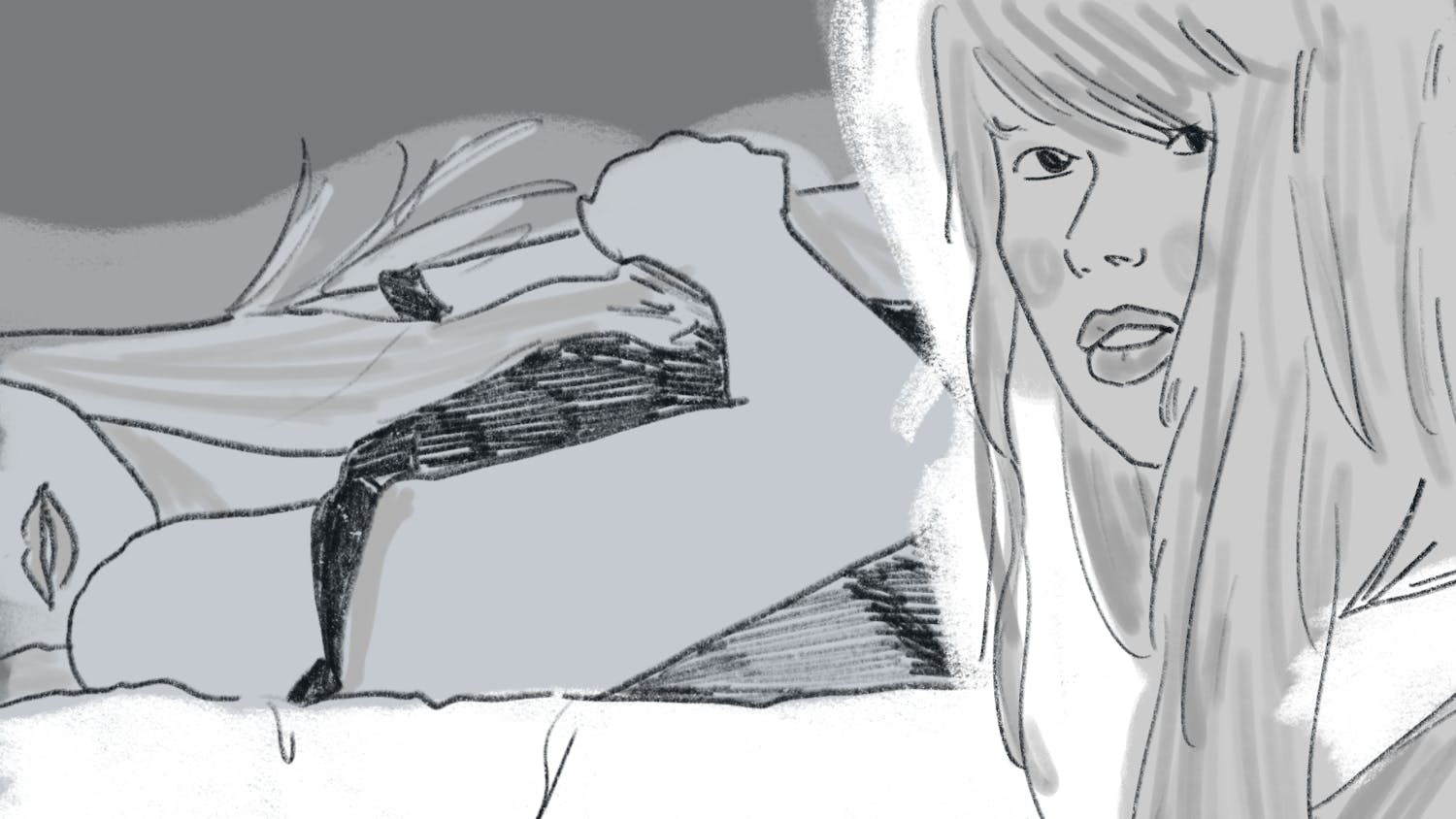Works of transgressive photography were the focus of yesterday evening's Museum Collecting 101 workshop, the second in a series of five to be held at the Hood Museum of Art this term.
Students are given the opportunity to view and discuss a wide selection of artistic works, and then vote on one object to be bought and put on display at the Hood.
The workshop is as interesting to the museum's staff as it is to the students involved, according to Amelia Kahl, the coordinator of academic programming at the Hood.
"It's very exciting for us; we love to see what the students choose," Kahl said. "The debate about what to buy is always fascinating, and always shows the range of interest and the thoughtfulness of Dartmouth students."
In the first session of the five-week program, held on Jan. 21, students reviewed the Hood's acquisitions policy and looked at works that had been selected in previous years' workshops.
Yesterday's session featured a demonstration of photography techniques in the Black Family Visual Arts Center, led by Matt Sturm '13.
Students were introduced to some of the basics of digital and darkroom photography to give them a sense of the kind of work that goes into a final print.
Sturm, a photography major, said that one of his motivations behind leading this lesson was to dispel the common belief that photography is not a true form of art.
"It's nice to get to show people all of the creative choices that you have to make," Sturm said. "Once you start realizing that every part of the image is deliberate, you see that there is a message that's being conveyed and there are a lot of things that make it up other than just the subject in the photo."
Anna Leah Berstein Simpson '13 said she appreciated that the lesson in the VAC allowed the participants to become involved.
"I was surprised at how hands-on the workshop is," Berstein Simpson said. "For instance, I didn't think that we would actually learn how to produce photos. That was really cool."
The third workshop, which will take place next Tuesday, will be a thematic study in which students look at other works in the Hood's collection to understand the different ways in which the theme of transgression can be interpreted.
The workshop will also allow students to see where there may be gaps in the collection that need to be filled.
The purpose of this session is to ensure that students are making their decisions in an educated way, according to Kahl.
On Feb. 11, the fourth installment of the program, students will be shown a selection of works from about 10 artists that the museum is considering for purchase.
Students will then discuss the artists and vote to select one or two to move on to the final round of deliberation.
In the final session of the workshop, an array of works by these artists will be displayed to the students, who will then debate and vote to select one object for the museum to purchase and put on display. Berstein Simpson said that she is looking forward to this discussion and voting process.
"I think it'll be really interesting to see how people decide which works or artists to choose," Berstein Simpson said. "I think we bring so many different things to the table and I'm sure it'll be a really interesting discussion."
The object selected at this workshop will be featured in an upcoming photography show at the Hood about the theme of transgression and will be curated by studio art professors Brian Miller and Virginia Beahan.
The workshop will provide an interesting educational experience to the students who participate in it, according to Kahl.
"We really want students to gain an understanding of why and how museums acquire works of art and give them a glimpse behind the scenes," Kahl said. "We hope that as they go out into the world, if they choose to collect themselves or to become patrons of museums, they will have some idea of how that works and what that world is like."
Berstein Simpson said that the workshop would be especially interesting for students who had not had very much exposure to the arts at Dartmouth.
"I like that they bring in a really diverse group of people," Berstein Simpson said. "I think that sometimes we get caught up in our own disciplines and we don't really see what other people are doing."
Museum Collecting 101 began as a Collis Miniversity class in 2002. It has stayed true to its origins as a non-curricular student program by remaining open only to students, Kahl said.
"Although we serve the community audience as well, we also serve the Dartmouth College audience," Kahl said. "We really want to focus on that student experience."
Kahl described the relationship between Dartmouth students and the Hood as a very close one, and said that it is always gratifying for Hood employees when students visit the museum and have positive experiences.
Kahl said she believes that student-only programs like Museum Collecting 101 contribute to this relationship.
"We want them as Dartmouth students to feel some ownership over the museum, that they have a voice and a stake in what is chosen," Kahl said.



